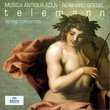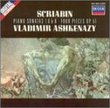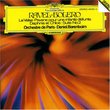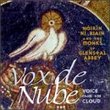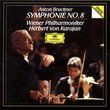| All Artists: George Lloyd, BBC Philharmonic Brass, BBC Philharmonic Orchestra Title: George Lloyd: Overture "John Socman"; Symphonies Nos. 6 & No. 10 "November Journeys" Members Wishing: 0 Total Copies: 0 Label: Albany Records Release Date: 8/11/1993 Genre: Classical Styles: Opera & Classical Vocal, Historical Periods, Modern, 20th, & 21st Century, Symphonies Number of Discs: 1 SwapaCD Credits: 1 UPC: 034061001522 |
Search - George Lloyd, BBC Philharmonic Brass, BBC Philharmonic Orchestra :: George Lloyd: Overture "John Socman"; Symphonies Nos. 6 & No. 10 "November Journeys"
 | George Lloyd, BBC Philharmonic Brass, BBC Philharmonic Orchestra George Lloyd: Overture "John Socman"; Symphonies Nos. 6 & No. 10 "November Journeys" Genre: Classical |
Larger Image |
CD DetailsSimilarly Requested CDs
|
CD ReviewsGENTLEMAN GEORGE Melvyn M. Sobel | Freeport (Long Island), New York | 10/16/2001 (5 out of 5 stars) "English composer, George Lloyd (1913-1998), has always radiated, for me, an exhuberant, deeply-felt, abundantly warm humanity--- without pretense. Here was, until just recently, an honest-to-goodness, flesh and blood man whose shell-shocked war experiences, bouts of deep depression, feelings of aimless wandering and uselessness almost drained him; yet were these travails absent, his persistent spirit might not have transformed him into a composer of exceptional insight, divine lyricism and a tenacious creativity. This CD gathers what I think are Lloyd's most accessible and attractive works--- and the distillation of his unique appeal. It was my own introduction to this "modern traditionalist"; it could be yours, too.The disc begins appealingly with the "John Socman" Overture [5:27]. From Lloyd's opera of the same name, it is tuneful, nostalgic, charming in its simplicity and, as far as overtures go, never outstays its welcome. Quite the contrary: It is a piece you will return to over and over. A perfect encapsulation.Symphony No. 6 is no less equally appealing or perfect: a short, quasi-romantic work of three movements--- and likely the most concisely attractive of the twelve symphonies he composed. As Lloyd himself said: "I like music that sings and moves along in a flowing way." I feel the same, especially about this lovely symphony. Every movement is a beauty, particularly the central Adagio, whose introspective, autumnal melancholy is wholly disarming. [22:27]Symphony No. 10 ("November Journeys"), the score of which Lloyd subscripted, "Impressions and reflections whilst visiting some cathedrals," was commissioned by the BBC for the Northern Brass Ensemble. So, in the midst of "journeying" about England--- "on cheap rail fares," the composer admits (and you've got to LOVE his honesty!)--- Lloyd composed this incredibly inventive, quirky, melodic and illuminating four movement work. Although more complex and "modern" than its earlier sister, due no doubt to the limitations and possibilities of an all-brass orchestration, Lloyd still allows his genial and translucent romanticism complete freedom of expression. Every movement is memorable: the First and Fourth are pleasingly energetic, with a touch of "bite," and enclose, like pearls, the Second and Third, whose unsurpassed, chorale-like beauty, devout longing and intense, haunting melodies will have you sniffing into your sleeve. [28:43]The pastoral moodiness intrinsic in Lloyd reminds us that he follows in the grand footsteps of composers like Elgar, Vaughan Williams, Finzi, Moeran and Bax; yet, Lloyd's musical language is distinctly his. There is no mistaking Lloyd for any other composer, nor is his writing derivative at any point.The BBC Philharmonic Orchestra (Overture; Symphony 6) and the BBC Philharmonic Brass (Symphony 10), under the direction of the composer, are exemplary, as is the recording.These works, so rich in their humanity and depth, should be far more widely heard and known. If there's one Lloyd CD you might like to own, or are even thinking about owning--- as representative of this quite remarkable artist's work--- let it be this, easily.[Running time: 56:45]"
|

